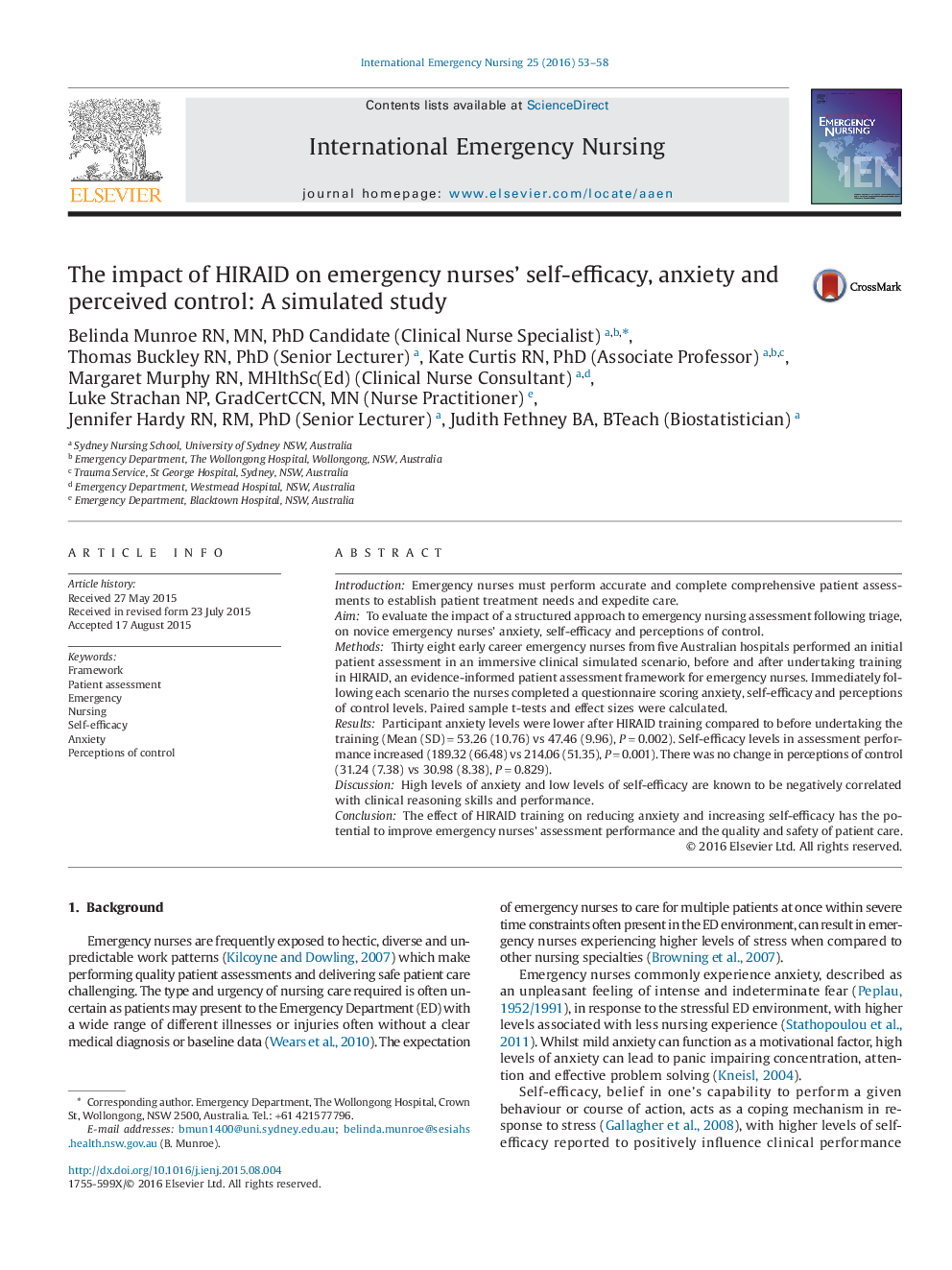| Article ID | Journal | Published Year | Pages | File Type |
|---|---|---|---|---|
| 5863313 | International Emergency Nursing | 2016 | 6 Pages |
â¢Low anxiety and high self-efficacy enhances clinical reasoning and performance.â¢HIRAID provides emergency nurses with a structured approach to patient assessment.â¢HIRAID reduces emergency nurses' anxiety when conducting patient assessments.â¢HIRAID increases emergency nurses' self-efficacy in performing patient assessments.
IntroductionEmergency nurses must perform accurate and complete comprehensive patient assessments to establish patient treatment needs and expedite care.AimTo evaluate the impact of a structured approach to emergency nursing assessment following triage, on novice emergency nurses' anxiety, self-efficacy and perceptions of control.MethodsThirty eight early career emergency nurses from five Australian hospitals performed an initial patient assessment in an immersive clinical simulated scenario, before and after undertaking training in HIRAID, an evidence-informed patient assessment framework for emergency nurses. Immediately following each scenario the nurses completed a questionnaire scoring anxiety, self-efficacy and perceptions of control levels. Paired sample t-tests and effect sizes were calculated.ResultsParticipant anxiety levels were lower after HIRAID training compared to before undertaking the training (Mean (SD)â=â53.26 (10.76) vs 47.46 (9.96), Pâ=â0.002). Self-efficacy levels in assessment performance increased (189.32 (66.48) vs 214.06 (51.35), Pâ=â0.001). There was no change in perceptions of control (31.24 (7.38) vs 30.98 (8.38), Pâ=â0.829).DiscussionHigh levels of anxiety and low levels of self-efficacy are known to be negatively correlated with clinical reasoning skills and performance.ConclusionThe effect of HIRAID training on reducing anxiety and increasing self-efficacy has the potential to improve emergency nurses' assessment performance and the quality and safety of patient care.
